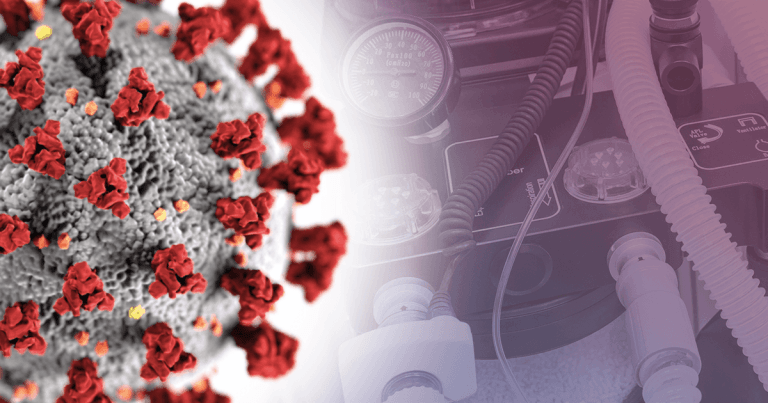20 Mar 2020
Royal college working with Defra and other veterinary organisations to provide life-saving equipment for coronavirus front-line fight.

Ventilator image: Paul Vinten / Adobe Stock
The veterinary sector has joined the fightback against coronovirus by mobilising equipment and expertise for the NHS.
As of today (20 March), a coordinated and nationwide effort is underway to supply essential life-saving kit for human health colleagues battling on the front line against the pandemic.
Vet Times can confirm the RCVS and other leading veterinary organisations are working with Defra to help coordinate a mass effort across the sector – by contacting vet schools, referral centres and veterinary practices – to inventorise certain types of veterinary equipment suitable for human use that could be made available to the NHS if required.
This is a national effort and is being done in a way that will minimise any impact on animal welfare, while ensuring help can be given quickly and where it would be needed most.
More than 100 deaths have been confirmed in the UK from COVID-19 and hospitals across the country are bracing themselves for a surge of cases, many of which will require ventilators and other equipment to resolve.
The NHS is believed to have around 5,000 ventilator units capable of the forced ventilation often required to resolve respiratory infections caused by the virus. Many more will be required, however, and at least one hospital has reached out directly to the veterinary profession for help.
Ventilators, infusion pumps and high flow cannulas were all on a list sent to a vet-specific online group by Nikki Jackson, a consultant obstetrician and gynaecologist at Hillingdon Hospital in west London.
After breaking the story earlier this week, Dr Jackson contacted Vet Times again. She said: “I don’t know if other hospitals have issued similar requests, but I am sure that we are not unique, and I know other hospitals are busier than we are.
“The issue is not because places don’t have their usual essential equipment, but the sudden demand is unprecendented and overwhelming. The response from NHS staff has been amazing, with everybody pulling together, but under extreme pressure.”
During the past few days, the government has been fielding offers of help from across the profession and has had discussions with the AHT and other veterinary facilities to assess what equipment might be available.
The RVC is also ready to throw its clinical capacity and expertise at COVID-19. Its Queen Mother Hospital for Animals is one of the leading referral centres in the country and houses state-of-the-art resources that could be pressed into service.
RVC principal Stuart Reid said he hoped he was speaking for the veterinary sector as a whole – not just the RVC – by offering to put these resources at the disposal of the NHS.
Prof Reid said: “The sector would respond in the best way it can to any call for national action – we know that to be the case.
“I recognise that not everyone would agree with prioritising one species over another, but we’re trying to do everything we can to help and, obviously, if the call comes in, we will do whatever we can.”
When contacted about the possibility of veterinary professionals stepping in to help, the RCVS referred members to its guidance on emergency interventions.
BSAVA president Sue Paterson added: “While as veterinary professionals our priority is the health and welfare of animals under our care, this is an unprecedented situation, where our veterinary community can step in to support our medical colleagues.
“We recognise there will be further challenges to the sector, but by all working together we can bring greater unity and strength in these tough times. In addition to helping to coordinate the provision of vital equipment, BSAVA is working on veterinary guidance and clinical educational support. We anticipate more will follow in the coming week as the evolving situation becomes clearer.”
For more information on the list and details on how to make equipment available, visit bit.ly/33EjPDv